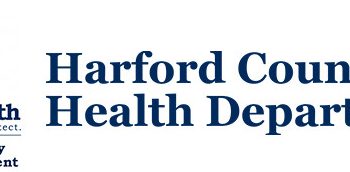
The Harford County Health Department along with the MD Department of Health & Mental Hygiene and local health jurisdictions across the state and nation join the national Centers for Disease Control and Prevention, the U.S. Environmental Protection Agency and the U.S. Department of Housing & Urban Development in celebrating National Lead Poisoning Prevention Week (NLPPW) October 23 -29.
This year’s theme, “Lead-Free Kids for a Healthy Future,” underscores the importance of testing your home, testing your child, learning more about drinking water, and understanding how to prevent lead poisoning’s serious health effects. The national observance also raises awareness of the consequences of lead poisoning among parents and pregnant women who live in homes built before 1978.
Lead exposure occurs through contaminated air, water, dust, food, or consumer products. In homes, dust from lead paint continues to be the number one source of childhood lead poisoning when swallowed or inhaled. Other products containing lead that can be toxic, if ingested or handled, include some a variety of vinyl household items, home remedies, cosmetics, inexpensive costume or children’s jewelry, toys, and even some food products, especially if imported.
Risk of lead poisoning is greater for some than others. Since lead can harm an unborn child, pregnant women or women likely to become pregnant should be especially careful to avoid exposure to lead. Infants and young children also are particularly vulnerable because they absorb 4–5 times as much ingested lead as adults from a given source. In addition, children’s curiosity and their age-appropriate hand-to-mouth behavior can result in their mouthing objects and swallowing lead contamination. Symptoms of lead poisoning are not always easy to detect, but are long-lasting and can cause behavioral problems, learning disabilities and delays in growth and development. Stopping a child’s exposure to lead from leaded paint, house dust, or any other source is the best way to prevent harmful effects of lead.
Prevalence of elevated blood lead levels in children in Maryland has dropped dramatically over the
years and a simple blood test can prevent permanent damage that will last a lifetime. However, Harford
County Health Officer Susan Kelly states, “There are still children with persistently elevated blood lead levels
from previous exposures and children who are newly exposed to lead every year. It is one of the most
important and preventable environmental problems for children in Maryland.”
The health department works closely with the Maryland Department of the Environment (MDE) on
lead-related issues. Through their Improved Pregnancy Outcomes Grant, HCHD provides consumer lead
case administrative coordination services, offering families education and outreach for prevention, as well as
follow–up blood lead-level monitoring. HCHD also can provide homeowners with consumer information on
safe work practices, explain legal rights and requirements to tenants of pre-1978 rental properties, and can
direct interested parties to MDE and accredited contractors.
Effective March 28, 2016, the State of Maryland Department of Health and Mental Hygiene (DHMH)
released new regulations regarding blood lead testing requirements for children ages 0 through 6 years. For
children born after 1/1/2015, all children must be tested at age 1 year and again at age 2 years.
A copy of the document, 2016 Maryland Guidelines for the Assessment and Management of Childhood Lead
Exposure, is available via the web at: http://phpa.dhmh.maryland.gov/OEHFP/EH/Pages/Lead.aspx. or you
may contact DHMH toll free at 1-866-703-3266.
For more information about lead poisoning and prevention, visit websites of the United States
Environmental Protection Agency (www.epa.gov/lead), the Centers for Disease Control and Prevention
(www.cdc.gov/nceh/lead ), the National Center for Healthy Housing (www.nchh.org) or the Harford County
Health Department (www.harfordcountyhealth.com).

